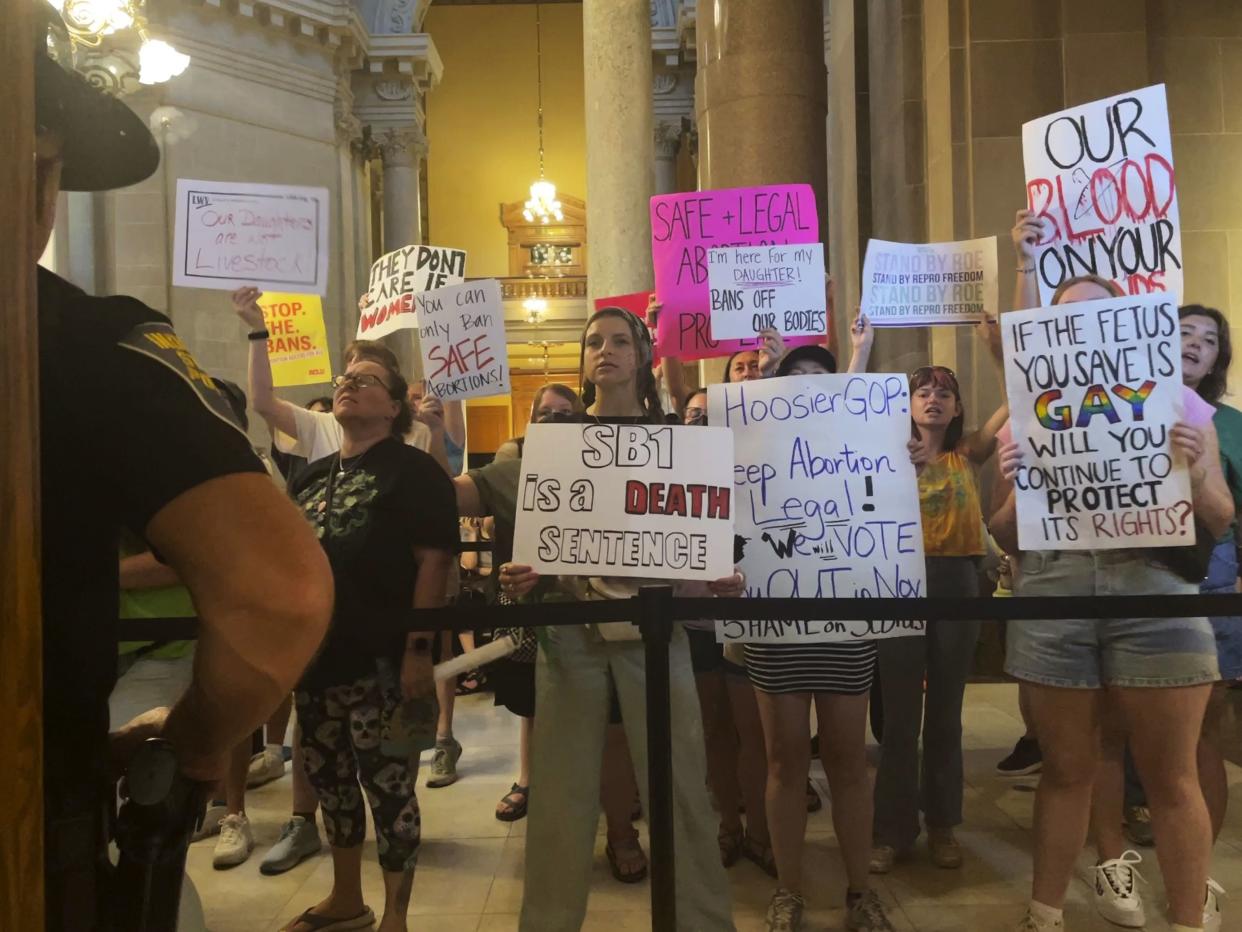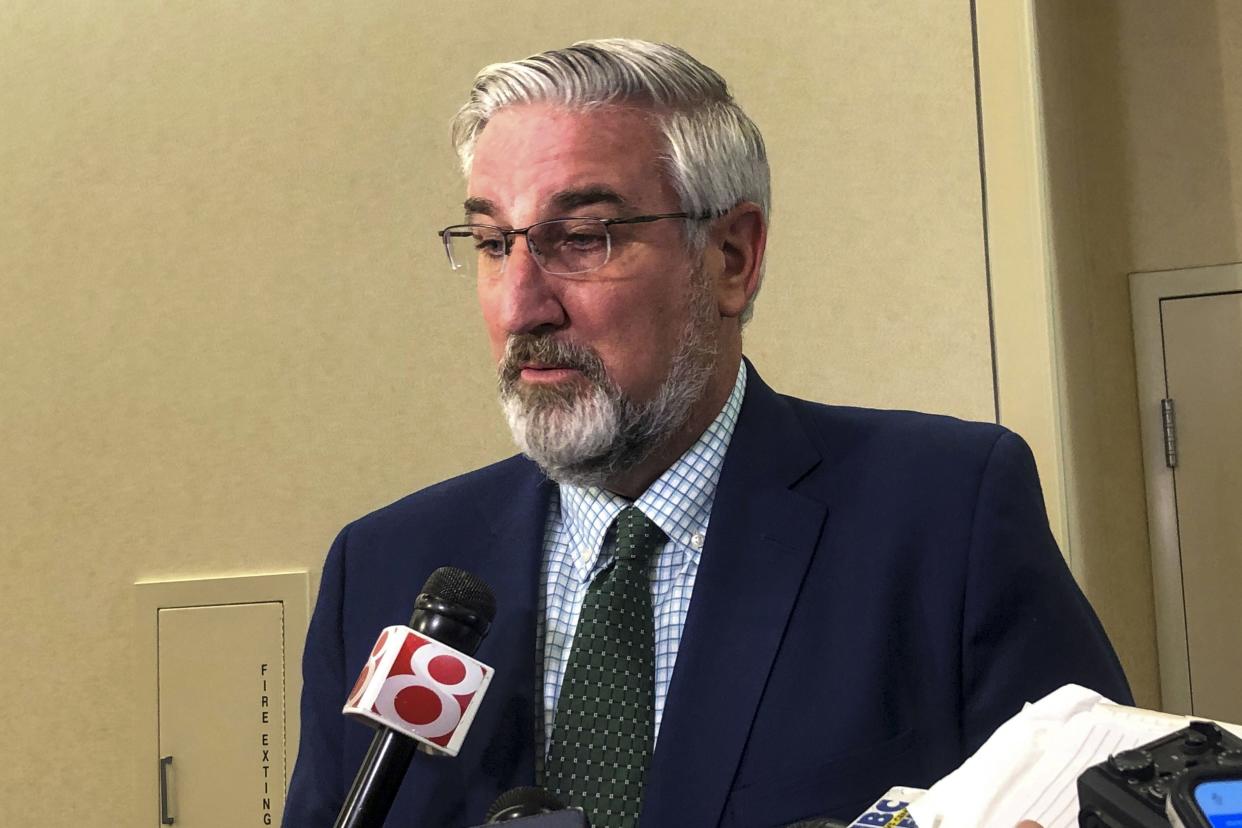Indiana becomes first state to ban most abortions post Roe v. Wade
Indiana has become the first state in the nation to adopt a near-total ban on the procedure since Roe v. Wade was overturned earlier this summer.
The state senate approved the restrictive legislation 28-19, just hours after it was advanced by the house with a vote of 62-38. Republican Gov. Eric Holcomb then signed the bill into law.
It includes some narrow exceptions, including for instances of rape and incest as well as for when the life of the mother is at risk and for fatal fetal anomalies, up to 20 weeks post-fertilization.
The new law, set to take effect starting on Sept. 15, also requires that abortions be performed at either hospitals or outpatient centers owned by hospitals, meaning all abortion clinics would lose their licenses. What’s more, doctors who perform the procedure illegally or fail to file required reports will also lose their medical licenses.

Abortion-rights protesters fill Indiana Statehouse corridors and cheer outside legislative chambers Friday. (Arleigh Rodgers/)
Under current law in Indiana, abortions are permitted up to 20 weeks after fertilization or 22 weeks after the mother’s last menstrual period.
“I am personally most proud of each Hoosier who came forward to courageously share their views in a debate that is unlikely to cease any time soon,” Holcomb said in the statement announcing that he had signed the measure. “For my part as your governor, I will continue to keep an open ear.”
Indiana joins nine other states that have also implemented an almost complete ban on abortion, but it is the first to pass such restrictive measures since the Supreme Court voted in June to overturn Roe v. Wade, stripping away constitutional protections for the procedure.

Indiana Gov. Eric Holcomb speaks with reporters at the Indiana Convention Center in Indianapolis on July 12, 2022. (Tom Davies/)
Sen. Sue Glick of LaGrange, who sponsored the bill, said that she does not think “all states will come down at the same place” but that most Indiana residents support aspects of the legislation.
Other senators, and on both sides of the aisle, bemoaned the bill’s passing, citing the impact it will have on residents, especially women in lower income areas.
“We are backsliding on democracy,” said Democratic Sen. Jean Breaux of Indianapolis. “What other freedoms, what other liberties are on the chopping block, waiting to be stripped away?”
With News Wire Services
